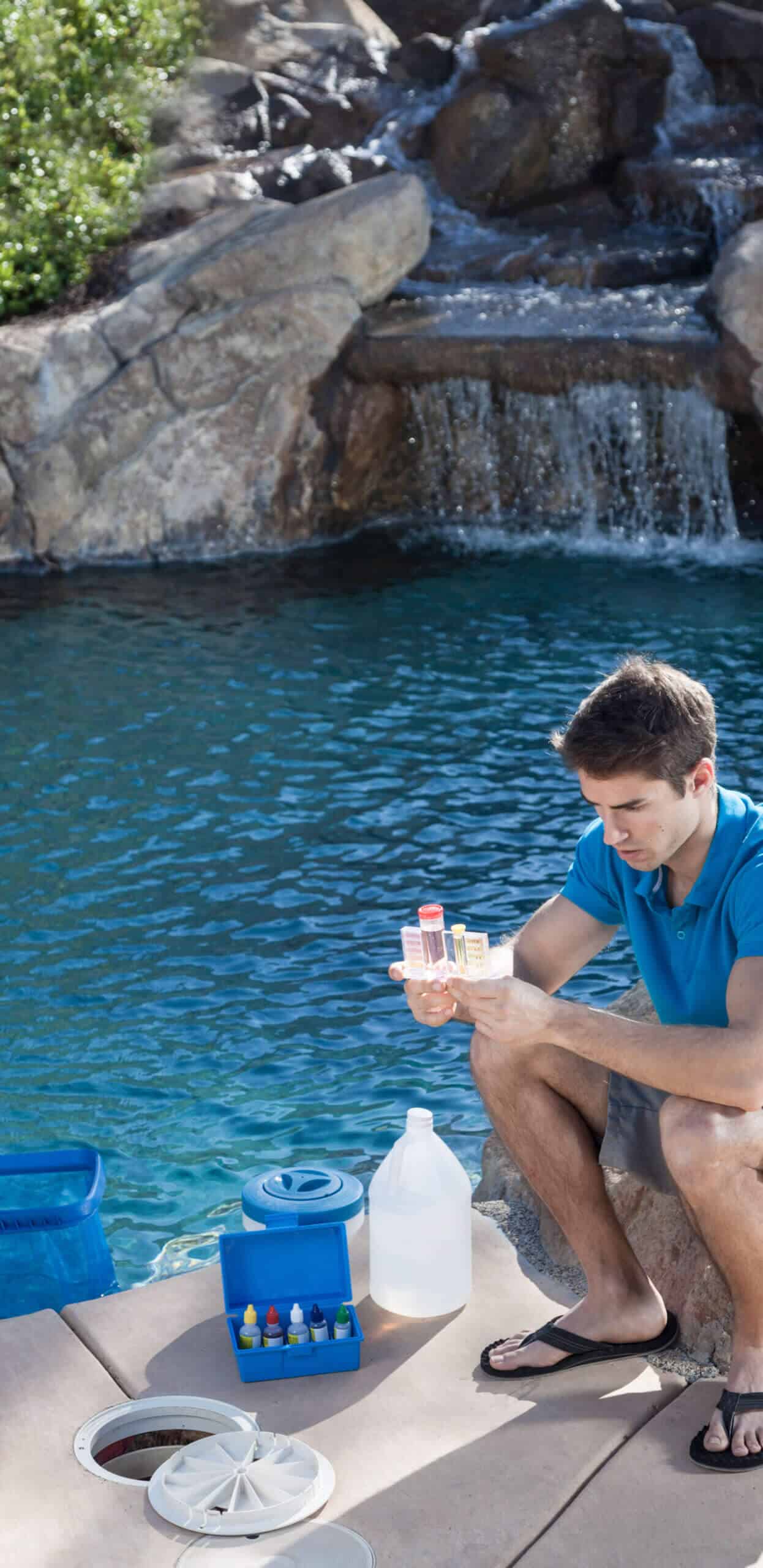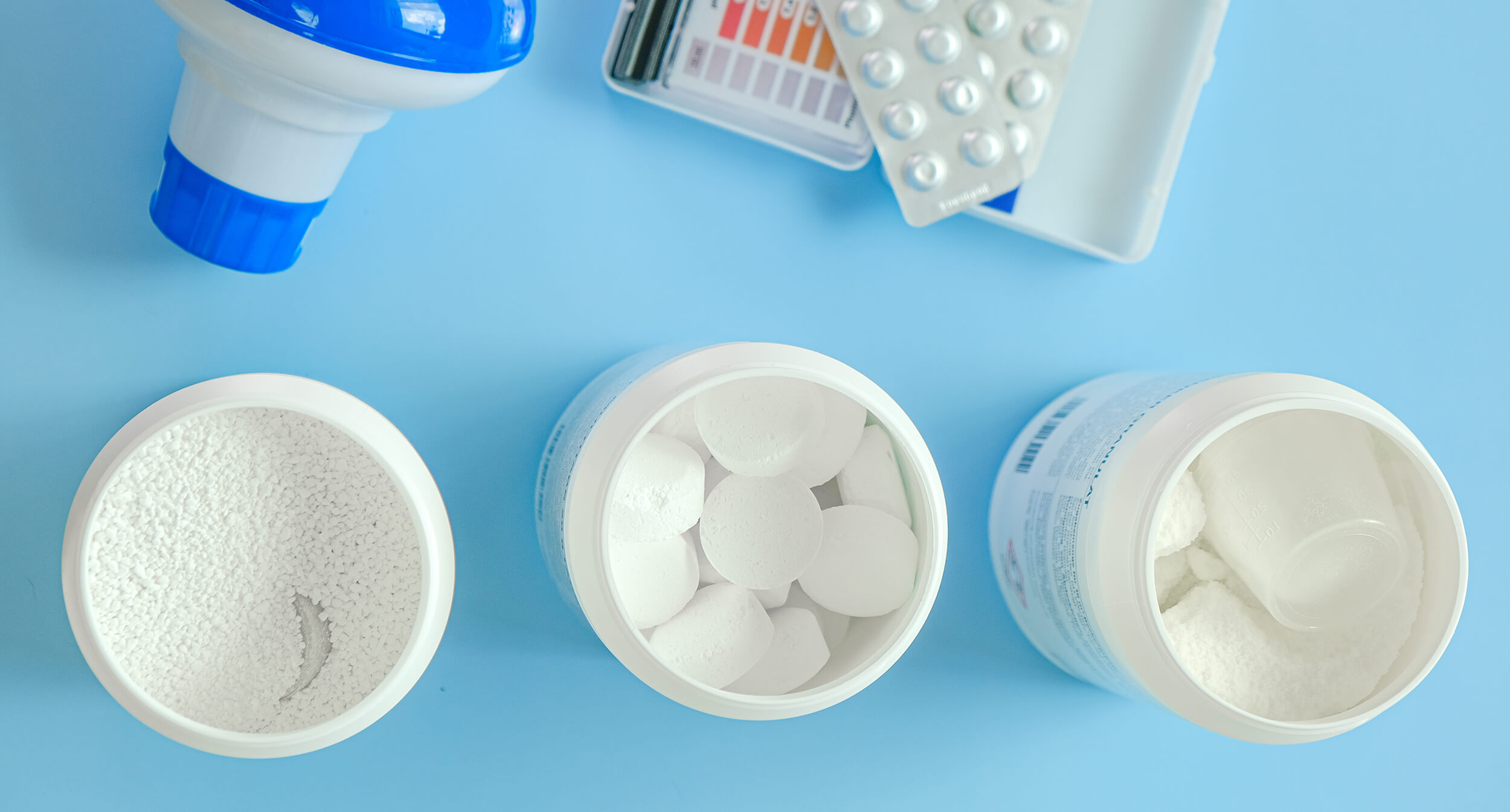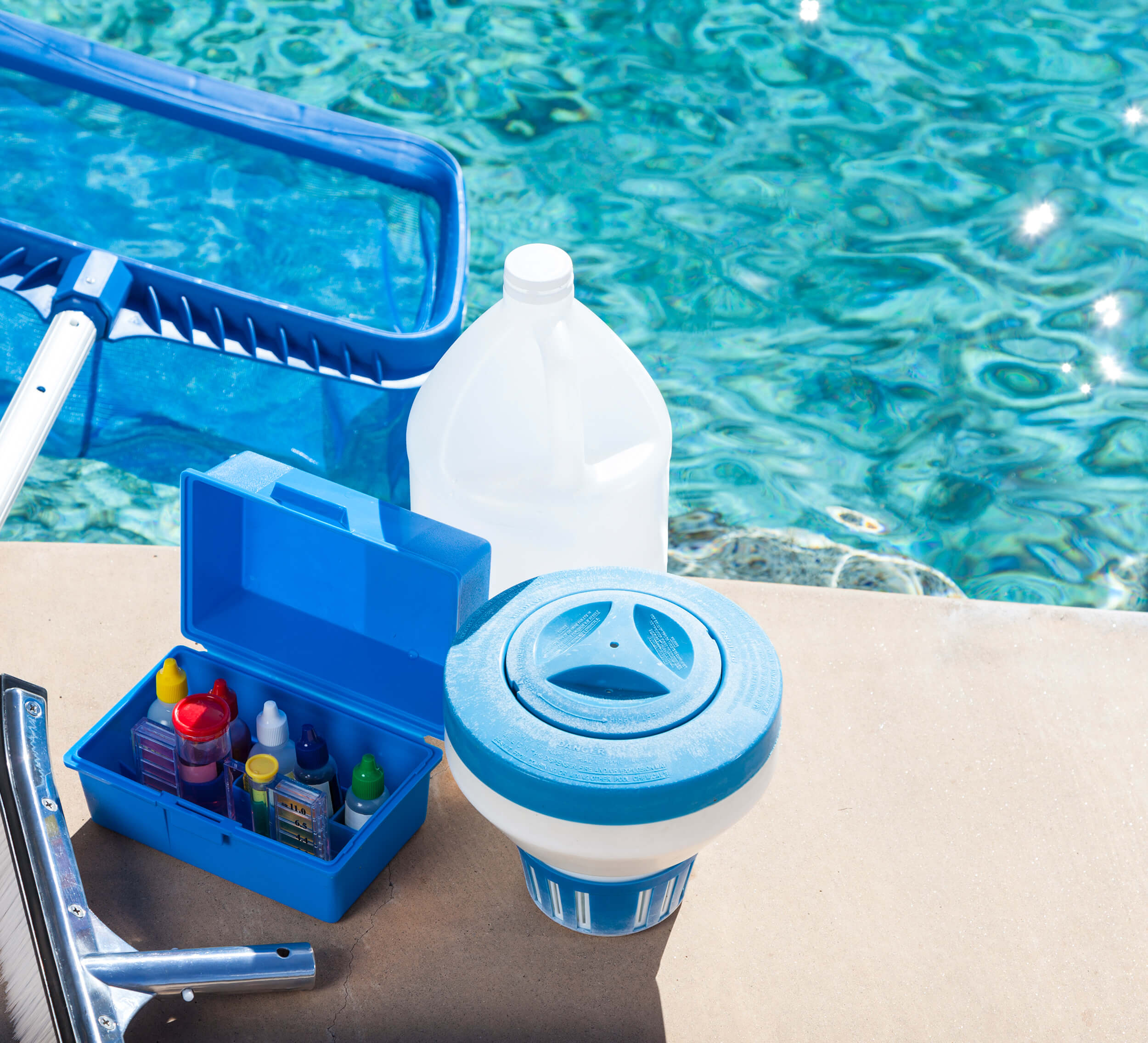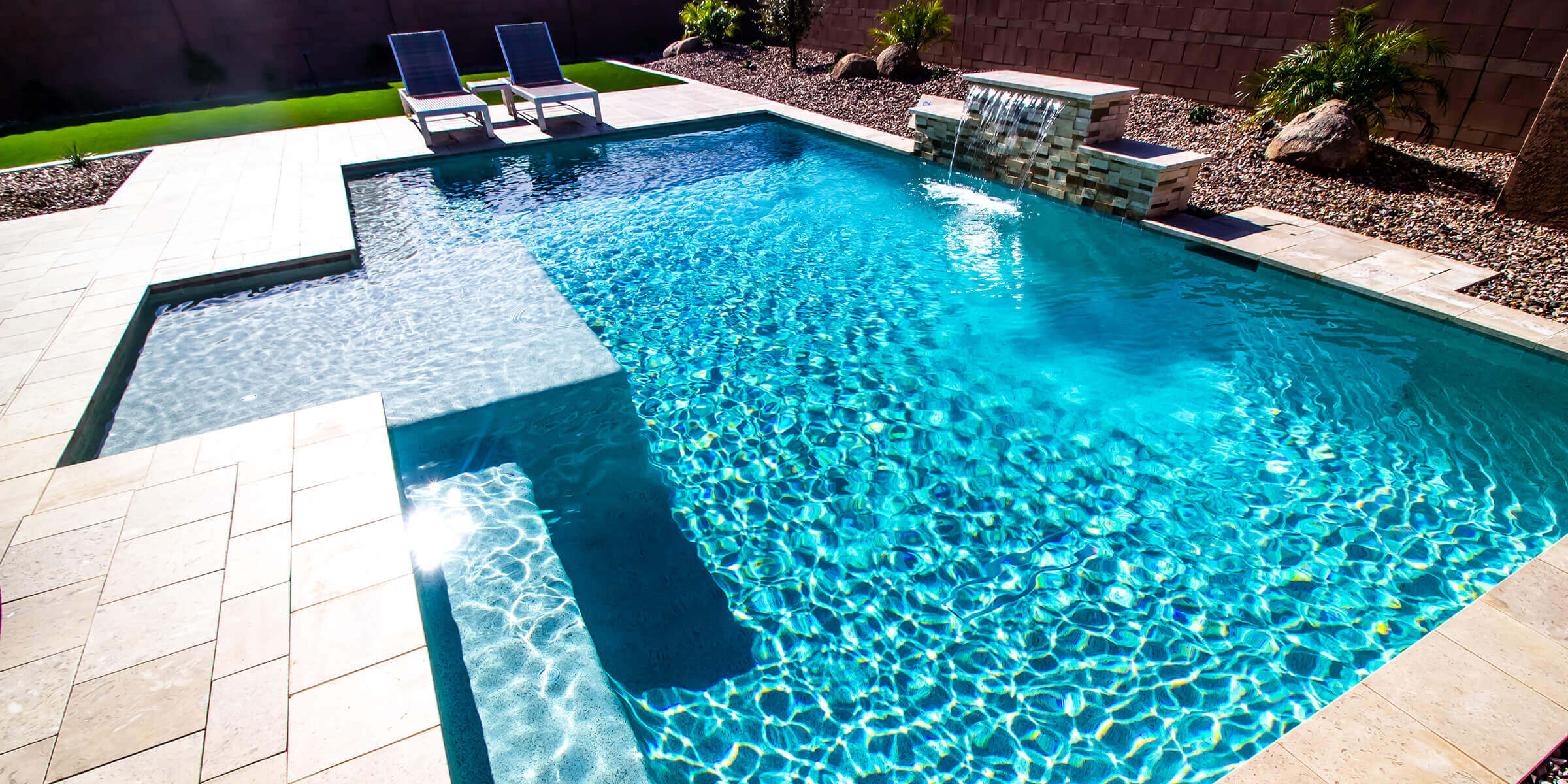While having a pool provides hours of fun and relaxation to you and your family, it comes with its responsibilities. Correct pool chemical storage is vital to ensure the safety of your family and furry friends.
Knowing how to store pool chemicals is straightforward when you have the know-how. Let’s take a look at essential guidelines on how to store pool chemicals so you can maintain a safe and healthy swimming environment all year round.

Where Should Pool Chemicals Be Stored?
Pool chemicals should always be stored in a dry, cool, and well-ventilated area. Here’s what you should look for in an ideal storage location.
Out of Direct Sunlight
It’s essential to store your pool chemicals at home out of direct sunlight to ensure safe use. Direct sunlight and high temperatures can cause certain compounds to break down over time, reducing the effectiveness of the chemicals and making them dangerous when used in your pool.
Well-Ventilated
A well-ventilated area for pool chemicals
- Helps keep them dry.
- Prevents mould and bacteria growth.
- Provides adequate air circulation to prevent the buildup of dangerous gasses.
If hazardous fumes accumulate from inadequate air circulation, they can cause health issues for anyone exposed.
Away From Flammable Items
If you’re wondering how to store pool chemicals outside, remember to keep the area away from any flammable items or sources of heat. Heat sources include petrol-powered lawn equipment, fire pits, barbecues, and anything else that could ignite when in contact with the pool chemicals.
In Original Containers
Keeping pool chemicals in their original containers is critical for safety reasons. Not doing so can cause unintentional chemical reactions. These reactions can ignite combustible materials and cause a fire or explosion.
Away From Children and Pets
Store pool chemicals away from your children and pets. If ingested, highly concentrated chemicals can cause injury or even death. Place containers in a secure area for peace of mind.
What Chemicals Should NEVER Be Stored Together?
Knowing how to store pool chemicals at home is clearly important. You may need multiple storage locations as some chemicals cannot be stored together.
Chemicals such as chlorine and acid or chlorine and bromine should never be stored together, as they could create a dangerous chemical reaction that releases harmful fumes.
Always keep hydrogen peroxide away from other chemicals as it’s very reactive and can react with products like petrol.


How Long Can Pool Chemicals Be Stored Safely?
Let’s look at how to store pool chemicals to maximise their usefulness by considering the shelf life of each product.
- Liquid chlorine has a shelf life of up to six months and can lose up to 90% of its potency in just one year if exposed to sunlight or extreme temperatures. Purchase only enough unstabilised liquid chlorine for six months, store it in a cool and dark area, and tightly seal the lid after each use.
- Granular chlorines can be stored in air-tight containers for up to five years for optimal shelf life.
- Chlorine tablets are convenient, pre-dosed and more resilient than granular chlorine when exposed to moisture. Storing them in tightly closed containers will maximise their efficiency for up to five years.
- Algaecide has a shelf life of up to five years, but it’s best to purchase enough for about six months at a time. Exposure to low temperatures and direct sunlight can reduce the effectiveness or make algaecide useless, so store it away from these conditions.
- Clarifiers are shelf-stable for up to five years. Take care not to expose them to low or high temperatures, as this can render the product useless.
FAQs About Storing Pool Cleaning Chemicals
Yes, it’s recommended that you shock your pool a few days before closing it to help prevent algae growth and keep the water clean.
You should add algaecide when closing your pool to help prevent algae growth and make it easier to reopen your pool. We recommend using a longlife algaecide on the day you close your pool.
Yes, you should super chlorinate your pool to help prevent algae growth and ensure the water remains clean and clear while closed. We recommend super chlorinating your pool a few days before closing it to give the chemicals time to circulate and mix with the water.
Super chlorination and shock are often confused as they’re very similar. While both increase the amount of free chlorine in your pool, they are technically different.
When you shock your pool, the chlorine level is raised very quickly to a high level strong enough to kill harmful bacteria and other microorganisms. This high level of chlorine is called breakpoint chlorination.
On the other hand, super chlorination involves adding a large amount of chlorine to your pool in a short time. This process raises the chlorine level high enough to kill contaminants in your pool water but doesn’t reach the level of breakpoint chlorination.
An average 3.7 by 7.3 meter in-ground backyard pool holds about 45,000 litres of water. As a rough estimate, you would need 1kg of shock for every 45 000 litres of water.
Our Hy-Clor Super Shock is available in 500g, 2 kg, 4 kg, and 10 kg. So for a 45,000 litre pool.
The exact number of bags of shock you need to winterise your pool depends on the size of your pool and the current condition of your pool water.
Talk To a Pro About Storing Pool Chemicals Safely
Storing pool chemicals safely and securely is important to protect yourself, your family, and the environment.
Hy-Clor is one of the largest swimming pool chemicals and equipment suppliers in Australia and New Zealand. Get your family’s pool set up for safe use today with Hy-Clor’s range of high-quality products.
If you would like more information on how to store pool chemicals, enquire via our online form. Alternatively, please visit your nearest Bunnings Warehouse for our full range of products.




